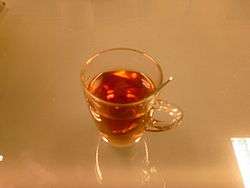Definify.com
Webster 1913 Edition
Thee
Thee
Definition 2026
Thee
Thee
English
Pronoun
Thee
- Alternative letter-case form of thee often used when referring to God or another important figure who is understood from context.
thee
thee
English
Pronunciation
- enPR: thē, IPA(key): /ðiː/
- Rhymes: -iː
- Homophone: the (when stressed)
Pronoun
thee (second-person singular, objective case, nominative thou, reflexive thyself)
- (archaic, literary) Objective case of thou.
- 1598, Shakespeare, Henry IV part 1, 1.2.49-50:
- Prince Henry: Did I ever call for thee to pay thy part?
- Falstaff: No; I'll give thee thy due, thou hast paid all there.
- 1742, Charles Wesley (music), “Come, O Thou Traveler Unknown”:
- Come, O thou Traveller unknown, / Whom still I hold, but cannot see! / My company before is gone, / And I am left alone with Thee; / With Thee all night I mean to stay, / And wrestle till the break of day.
- 1598, Shakespeare, Henry IV part 1, 1.2.49-50:
- (Quaker, Amish, Pennsylvania Dutch English) Thou.
- Thee is a little strange, I think.
Usage notes
When used in place of the nominative thou, thee uses the third-person singular form of verbs (see example above).
Derived terms
Translations
|
Verb
thee (third-person singular simple present thees, present participle theeing, simple past and past participle theed)
- (transitive) To address (somebody) as "thee"; to thou.
See also
| Number | Person | Type | Subject | Objective | Reflexive | Possessive adjective | Possessive pronoun |
|---|---|---|---|---|---|---|---|
| Singular | First | — | I | me | myself | my, mine (archaic) |
mine |
| Second | — | you | you | yourself | your | yours, yourn (obsolete outside dialects) |
|
| Archaic | thou | thee | thyself, theeself |
thy, thine |
thine | ||
| Third | Masculine | he | him | himself, hisself (archaic) |
his | his, hisn (obsolete outside dialects) |
|
| Feminine | she | her | herself | her | hers, hern (obsolete outside dialects) |
||
| Neuter | it | itself | its | its | |||
| Indefinite | one | oneself | one's | — | |||
| Plural | First | — | we | us | ourselves | our | ours, ourn (obsolete outside dialects) |
| Second | — | you, ye (archaic) |
you | yourselves | your | yours, yourn (obsolete outside dialects) |
|
| Third | — | they | them | themselves | their | theirs, theirn (obsolete outside dialects) |
|
Statistics
Etymology 2
From Middle English theen (“to increase, prosper, flourish”), from Old English þēon (“to thrive, prosper, flourish, grow”), from Proto-Germanic *þinhaną (“to thrive, succeed”), from Proto-Indo-European *tenk-, *tenkh- (“to succeed, turn out well”). Cognate with Dutch gedijen (“to flourish, thrive, prosper, succeed”), German gedeihen (“to thrive”), Gothic 𐌲𐌰𐌸𐌴𐌹𐌷𐌰𐌽 (gaþeihan, “to increase, thrive”).
Pronunciation
- enPR: thē, IPA(key): /θiː/
- Rhymes: -iː
Alternative forms
- the (Scotland)
Verb
thee (third-person singular simple present thees, present participle theeing, simple past and past participle theed)
- (intransitive, archaic, literary, Britain dialectal) To thrive; prosper.
- Spenser
- Well mote thee, as well can wish your thought.
- Spenser
Derived terms
Etymology 3
From Pitman zee, which it is related to phonetically and graphically, and the sound it represents.
Noun
thee (plural thees)
- The letter ⟨(⟩, which stands for the th sound /ð/ in Pitman shorthand.
Related terms
Anagrams
Dutch
Pronunciation
- Rhymes: -eː
- IPA(key): /teː/
Etymology
From Min Nan 茶 (tê) through Malay teh. The "-h-" is a faux-Greek spelling (compare Greek τσάι (tsái)).
Noun

Filled tea glass
thee m (plural theeën, diminutive theetje n)
Derived terms
Anagrams
Scots
Etymology
From Old English þēoh, from Proto-Germanic *þeuhą, ultimately from Proto-Indo-European *tewk-.
Pronunciation
- IPA(key): /θiː/
Noun
thee (plural thees)